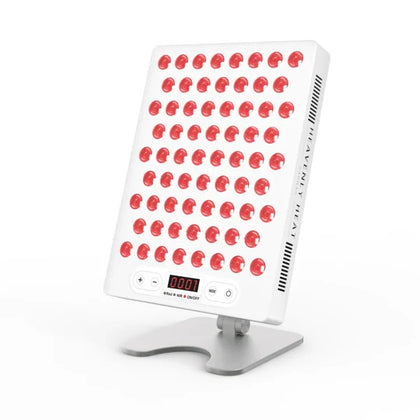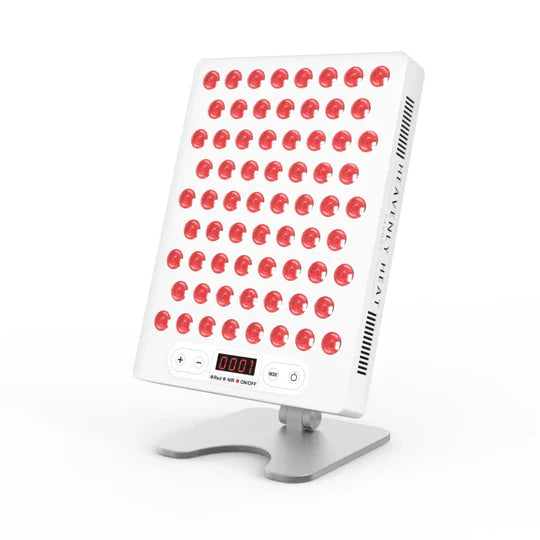Does Sauna Increase Testosterone?

Wondering if saunas can boost testosterone levels? You’re not alone. Many men, especially those over 30, experience decreased energy, lower libido, and weight gain, which could be signs of low testosterone. In fact, 1 in 4 men in the U.S. face this issue.
But could the sauna help? Studies suggest it might. Let’s dive into the science behind saunas and testosterone to see if this natural therapy can make a difference.
Key Takeaways
- Testosterone is essential for men’s physical traits and overall health, but levels can decline with age and stress.
- Saunas may not directly boost testosterone in the short term but can enhance overall hormone balance by increasing hormones like growth hormone.
- Regular sauna use might lead to a slight increase in testosterone levels, as shown in a study with active young men.
- Spending time in a sauna can lower cortisol levels, potentially reducing stress and promoting better hormonal health.
- The relationship between sauna use and testosterone levels is complex and still being researched, with minimal direct effects observed.
What are Testosterones?
The Cleveland Clinic explains that testosterone is a key hormone primarily produced by the gonads (testicles in males, ovaries in females), and to a lesser extent by the adrenal glands . It plays a vital role in the development of male traits, libido, bone and muscle strength, and sperm production. Testosterone levels naturally peak during adolescence and early adulthood, but beginning around age 30 to 40, they can gradually decline—sometimes leading to symptoms that affect daily life.
Several factors can cause low testosterone , including:
Natural aging: Testosterone production often slows with age.
Obesity: Excess body fat may disrupt hormone regulation.
Medications: Treatments like chemotherapy can reduce testosterone levels.
Injury or disease: Damage to the testicles or testicular cancer can impair hormone output.
Gland dysfunction: Issues with the hypothalamus or pituitary gland can interfere with hormonal signaling.
Low thyroid function: This can indirectly suppress testosterone levels.
Chronic illness or infection: Long-term health conditions may disrupt hormone balance.
Low testosterone can lead to fatigue, reduced libido, depression, loss of muscle mass, and difficulty concentrating.
Fortunately, manageable options exist. In addition to medical therapies, regular exercise, healthy eating, stress management, and sleep hygiene can help support hormonal health. With early intervention and lifestyle changes, many individuals see significant improvement in energy, mood, and overall quality of life.

Studies that cover the effects of sauna on testosterone
- Sauna does not give an instant testosterone boost: Research shows saunas don’t cause a direct or immediate spike in testosterone, but they do influence other important hormones.
- Other hormones like growth hormone and prolactin get boosted in sauna: Sauna sessions increase levels of growth hormone and prolactin, which play a big role in muscle, fat, and bone metabolism, indirectly supporting testosterone health.
- A small rise in testosterone was seen in young men after sauna use: One study on 30 active young men found a tiny increase in testosterone after four short sauna sessions, but the change was not very big.
- Regular sauna use keeps hormone levels more steady over time: Using the sauna regularly helps your hormone levels become more stable, avoiding sudden ups and downs.
- Results about sauna boosting testosterone are mixed and not clear: Different studies give mixed results, some people get a small testosterone rise, but for most, the change is very minor.

Natural ways to increase testosterone levels
Engage in Regular Exercise to Boost Testosterone
- Regular exercise helps your body make more testosterone: Exercise is one of the best ways to naturally boost testosterone, and research strongly supports this fact.
- Doing aerobic exercises like cycling can raise testosterone by cutting body fat: A 2018 study showed that men who lowered their body fat with aerobic exercises, such as cycling, had better testosterone levels.
- High-intensity exercises like HIIT give a quick boost to testosterone: HIIT workouts have been shown to cause an immediate but short-lasting rise in testosterone right after training.
- Staying active with cardio and losing fat helps keep testosterone healthy over time: Keeping up with cardio exercises and maintaining a healthy body fat percentage are natural ways to support testosterone levels in the long run.
- Pushing yourself harder during workouts leads to a stronger testosterone boost: Research shows that moderate-to-high intensity workouts raise testosterone levels more than light exercises, even though the boost is temporary.
Increase Your Vitamin D Intake for Higher Testosterone Levels
A study found that overweight men who took vitamin D supplements saw significant increases in their testosterone levels after a year.
Those who didn’t take the supplements showed no change. This suggests that ensuring you have enough vitamin D could help maintain healthy testosterone levels and overall well-being.
Prioritize Quality Sleep to Support Testosterone Production
- Good sleep plays a big role in boosting testosterone: A 2005 study found that testosterone levels depend a lot more on how well you sleep than just on your body’s internal clock.
- Sleeping at different times still helps testosterone rise: In the study, seven healthy young men slept at night, during the day, and followed normal sleep patterns, and in all cases, sleeping helped their testosterone levels go up.
- Sleep time helps testosterone grow, no matter day or night: The results clearly showed that whether it’s night or day, getting proper sleep makes testosterone levels increase, proving how powerful quality sleep really is.
- Staying awake for too long causes testosterone to fall: The researchers also saw that when the men stayed awake, their testosterone levels dropped, showing why good, regular sleep is key to keeping testosterone high.
Reduce Sugar Intake to Maintain Healthy Testosterone Levels
- High sugar intake harms testosterone levels: A study by Chen et al. (2018) explored how sugar-sweetened beverages (SSBs) affect testosterone levels in men aged 20 to 39, showing a connection between high sugar consumption and low testosterone.
- Sugary drinks increase risk of low testosterone: The research found that men who consumed more than 442 calories from sugary drinks each day were 2.29 times more likely to have low testosterone compared to those who drank less than 137 calories from sugary drinks.
- Cutting sugary drinks supports healthier testosterone levels: Cutting down on sugary beverages can be an effective and natural way to help keep testosterone levels balanced and support overall hormonal health.
Practice Yoga to Naturally Enhance Testosterone
- Yoga Increases Testosterone Levels: Salivary testosterone, which is linked to stress and personality traits like extroversion, tended to increase after yoga stretching.
- Yoga Improves Hormonal Balance: The testosterone-to-cortisol ratio, a key indicator of athletic recovery, improved significantly, showing the positive effects of yoga on hormonal balance.
Manage Your Body Weight to Optimize Testosterone Levels
Managing body weight helps boost testosterone by reducing fat and improving muscle mass.
Regular exercise and a balanced diet are key to maintaining weight. This approach supports hormone production and overall health, making it easier to maintain higher testosterone levels naturally.
Method |
Type |
Key Benefit |
HIIT & Cardio |
Exercise |
Immediate but temporary testosterone boost |
Healthy Diet |
Nutrition |
Supports hormone production (zinc, magnesium, fats) |
Vitamin D |
Supplement |
Linked to increased testosterone in vitamin D-deficient men |
Sleep |
Lifestyle |
Boosts and maintains healthy testosterone levels |
Less Sugar |
Nutrition |
Prevents testosterone suppression linked to high sugar |
Yoga |
Stress Reduction |
Improves hormone balance and recovery (T/C ratio) |
Weight Management |
Lifestyle |
Lowers body fat → supports healthy testosterone production |

Other Therapies that help with increase Testosterone
Cold exposure
Cold exposure might sound intense, but it can actually help your body boost testosterone after tough workouts.
When you jump into cold water after exercise, it helps lower inflammation and gives your body a chance to recover faster.
According to the University of Wisconsin-La Crosse , athletes who did cold-water immersion for 25 to 35 minutes after sprint training saw a big rise in testosterone levels, especially 24 to 48 hours later.
In fact, those who stayed in cold water for 35 minutes had even higher testosterone than before they started. Cold really can recharge your hormones.
Red Light Therapy
Red light therapy is one of the newer therapies people are using to naturally boost testosterone. It works by shining low-level red or near-infrared light directly on the testicles, which helps improve blood flow and energy production in the cells.
This boost can support the body’s natural testosterone-making process. In a study , on male rats, researchers used a 670 nm red light on the testes for five days and saw a clear increase in testosterone levels by day four, without any damage to the tissue.
Another review showed that red , light therapy can also improve sperm quality, movement, and overall reproductive health.
When combined with other laser treatments, it helped men dealing with fertility problems. While we still need more studies on humans, these results are promising.
Red light therapy could be a safe, non-invasive way to support testosterone levels as part of a healthy lifestyle.
FAQs
Can regular sauna use lead to long-term improvements in testosterone levels?
Regular sauna use can raise testosterone levels over time with consistent sessions. Using a sauna three to four times a week supports hormone health by activating the hypothalamic-pituitary-gonadal (HPG) axis, which controls testosterone production. It may also reduce cortisol, a stress hormone that suppresses testosterone.
Can regular sauna use lead to long-term improvements in testosterone levels?
Regular sauna use can positively impact testosterone by improving blood flow and triggering hormonal responses. Over time, consistent use may lead to long-term improvements. Sauna sessions can also reduce cortisol, supporting healthy testosterone levels, and may help slow the natural decline in testosterone in aging men, promoting better hormone balance.
Could sauna use have negative effects on testosterone in certain conditions, such as overuse or heat intolerance?
Excessive sauna use can lower testosterone levels, especially with prolonged heat exposure. Heat intolerance can strain the body's temperature regulation, leading to hormonal imbalances. Extended sauna sessions may disrupt testosterone production. Individuals with cardiovascular issues or heat intolerance may face higher risks. Use saunas responsibly to maintain balanced testosterone levels.
Does sauna use have different effects on testosterone levels in men of varying age groups or fitness levels?
Sauna use boosts testosterone levels more in younger men, as testosterone naturally declines with age. Active men experience a stronger response than sedentary ones, with highly trained athletes seeing even greater effects. Frequent sauna use provides consistent benefits, especially for fitter individuals. Generally, younger men see more significant boosts than older men, even with similar fitness levels.







































